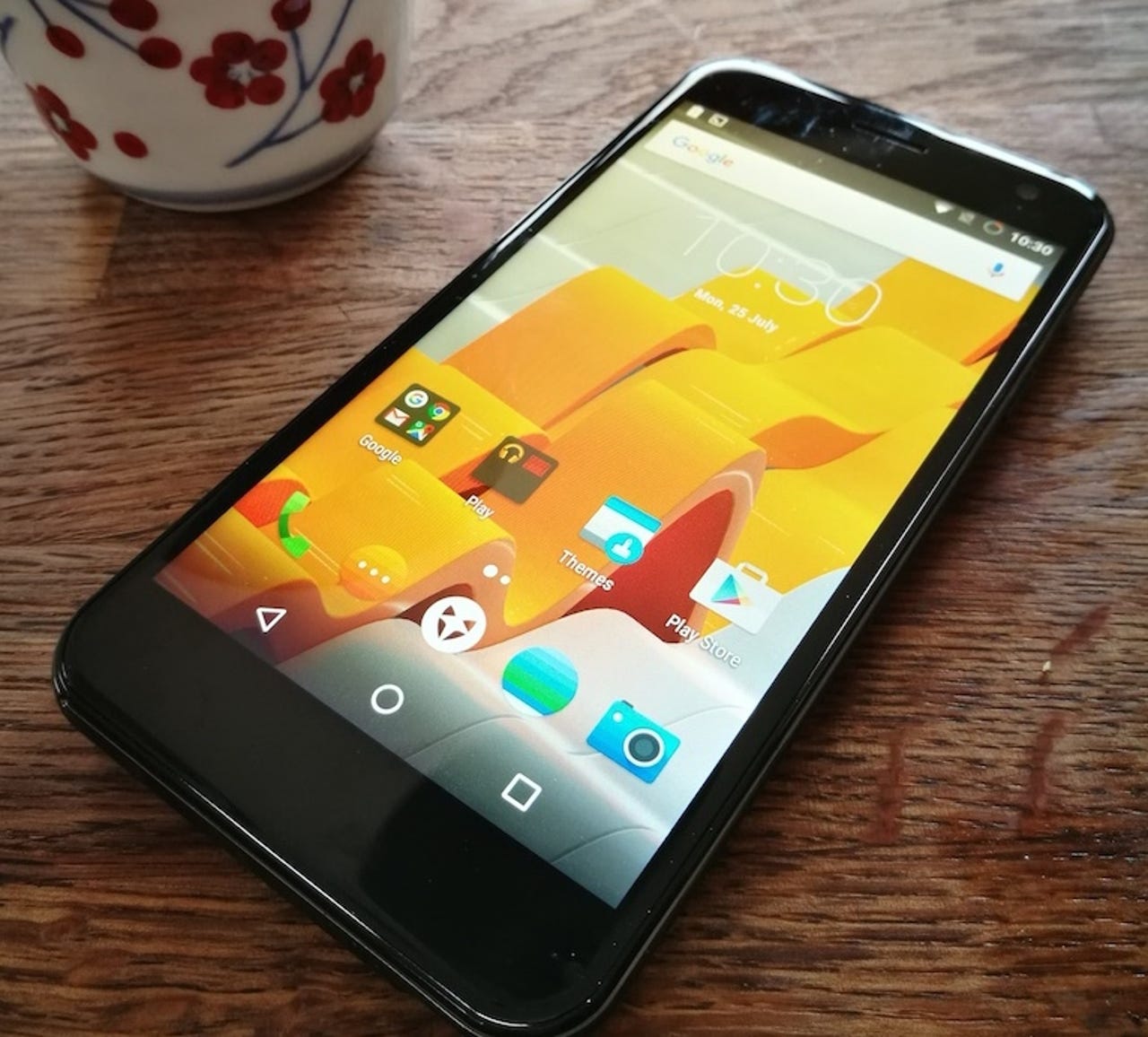Wileyfox: The smartphone startup that wants to outfox the big players

The Wileyfox Spark is the latest handset from the UK start-up.
The UK doesn't have many smartphone companies: perhaps the best known is Vertu, which makes expensive handmade handsets for the super-rich.
In contrast, startup UK Wileyfox is targeting the opposite end of the market, aiming for the masses with low-cost handsets built in China. The company argues that its lean business model can help it compete with the industry's giants.
"What really brought it to life for me was at [the Mobile World Congress tradeshow] there was a manufacturer who launched a handset and the top variant of that handset was mooted as being €860. I was absolutely flabbergasted -- that's when I started to think everyone is paying far too much for this stuff," said Wileyfox CEO Nick Muir.
Wileyfox unveiled its first handsets last year and recently launched its third device, the Wileyfox Spark which retails at £89.99. More smartphones are in the pipeline, for launch later this year.
While a big company might be able to get components 10 percent cheaper than Wileyfox by buying in bulk, Muir maintains that his small company -- numbering just 27 people -- can still keep its costs low.
"Part of the surprise and delight of starting all of this was looking at the Chinese manufacturing ecosystem and suddenly understanding that we could take components -- first-class global quality components -- and buy them at such a rate and have them put together for us. That was quite a dramatic realization," said Muir, who argues that the reason many smartphone-makers are struggling is not the cost of components but the cost of their organizations.
"There are some big changes coming -- there are a number of tier-one manufacturers whose business model is not sustainable as it stands," said Muir.
"We really do make a healthy gross margin on every device, and the reason we do so is because we don't have glass offices, sporting contracts, or legacy pensions, or any of those things to worry about," he said.
Cyanogen OS: free from bloatware
One of the more unusual choices made by Wileyfox is to use Cyanogen OS as its operating system, which is built on top of Android.
"Handsets are full of bloatware, which nobody really enjoys as they slow everything down and use up memory. We hated the bloatware, all of us did, and we wanted an OS or addition to it that gave people more freedom," said Muir.
According to Muir, the company also chose Cyanogen because it thought it might find a large and readymade community of Cyanogen fans. "That turned out to be not quite the case, but nonetheless the user experience is pretty compelling," he said, adding that the company plans to stick with Cyanogen.
Wileyfox has said that it aims to ship its two-millionth handset in the next 12 months by releasing new handsets and selling in more countries. Don't expect to see a Wileyfox tablet anytime soon, though.
"At the moment I can't see a route to a tablet: the margins available on tablets are super-tight already, and I don't see how we could provide differentiation. That could change over time, but right now I don't see how we could effectively make something that had genuine value," said Muir.
Wileyfox also keeps costs low by cutting back on some of the bells-and-whistles you might find in more expensive handsets: "We've tried to make sure that everything you will use is present and everything you don't need isn't there -- that's the philosophy anyway," said Muir.
But while last year's Wileyfox Swift was lauded, so far reviews of the new Spark have been lukewarm: if this British startup really wants to outfox the big players, it will have to deliver on performance as well as price.
